synarthrosis
Fibrous joints include all joints where the surfaces of bones are almost in direct contact, as in joints between the bones of the skull (except the TMJ). There are three main types of fibrous joints:
sutures
At the sutures, the ends of the bones have interdigitations or grooves, which keep them intimately and firmly united. Consequently, the connecting fibers are too short, filling a small gap between the bones. This type of joint is found only between the flat bones of the skull. At maturity, the suture fibers begin to be replaced completely, those on both sides of the suture become tightly joined/fused. This condition is called synostosis.
| Cranial suture example | Example of Synostosis (Sacrum) |
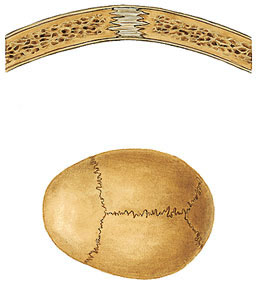 | 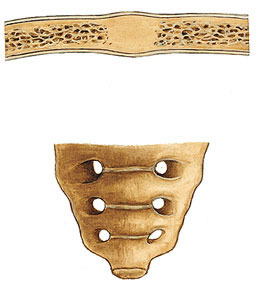 |
| CRANIAL SUTURES |
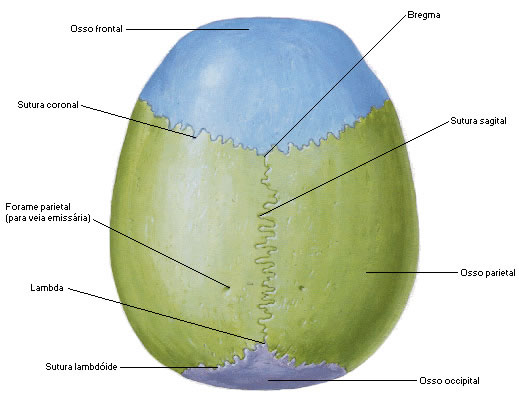 |
| Source: NETTER, Frank H.. Atlas of Human Anatomy. 2nd edition Porto Alegre: Artmed, 2000. |
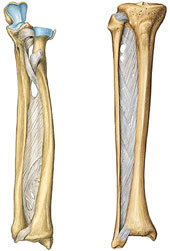 syndesmoses
syndesmoses
In these sutures, the tissue interposed is also the fibrous connective tissue, but it does not occur in the bones of the skull. In fact, the Anatomical Nomenclature only records two examples: tibio-fibular syndesmosis and radio-ulnar syndesmosis.
gomphoses
Also called a dowel joint, it is a fibrous joint specialized for fixing teeth in the alveolar cavities in the mandible and maxilla. The collagen of the periodontium joins the dental cementum with the alveolar bone.
| GONFOSES – PRIMARY AND PERMANENT TEETH |
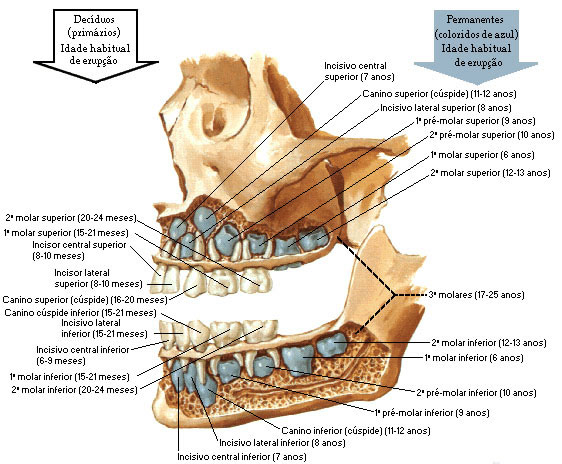 |
Source: NETTER, Frank H.. Atlas of Human Anatomy. 2nd edition Porto Alegre: Artmed, 2000. |
